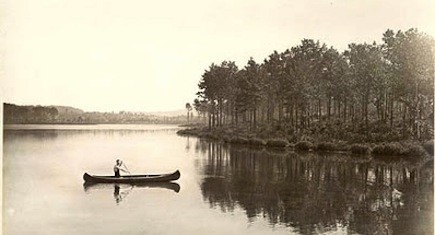 I have been saying goodbye to my father for many years. It’s odd, really, because he has been one of the most dependably present forces in my life.
I have been saying goodbye to my father for many years. It’s odd, really, because he has been one of the most dependably present forces in my life.
Unlike many of my friends, I grew up in a family that stayed together – for better or for worse – through the convention-bound ’50s, through the Sexual Revolution and the beginning of the Women’s Movement, and through the cries and conversations, the dinners, the gifts, apologies, blessings and lies that are the gestures of family life.
And although my father is large and inarticulate and unavailable in the way of fathers, he also has been a strong and loving influence in my life. The world without my father is unimaginable. Yet I often try to picture it so, perhaps by way of preparation for the unimaginable.
One time is very clear in my memory. I was 15 or 16, canoeing with my father down the Meechum River – a sweet, winding rill near our house in Virginia. At the end of a long run of rapids Dad dropped me off at the shore to run home and fetch the car.
As I began my ascent of the wooded hill that led toward home I chanced to look back at my father as he steered the canoe into the small rapids of the river. He looked fragile from above, awkward, like a lanky Indian chief. And I couldn’t take my eyes off him.
I watched him with the illicit thrill of viewing him in his solitude. It was the first time I saw him as a person in the larger world – away from family, job, away from the barn where he chopped wood on weekends, away from me.
I saw he had his own purpose. Something I could sense but not say. And I had the sudden premonition that if he disappeared around the curve in the river he would never return. He would simply float off the world. His life ripped through me like the little whirlpools left in the river where he had paddled.
I stood vigil among the laurel bushes for a long time watching his canoe, determined to keep him afloat with my newfound view of him. And, just in case, I said my goodbyes.
By the time I caught up with him later in the day life had resumed its domestic parameters. Dad was nagging me about putting away the boat gear and I was scheming ways to get out of the house to visit my friends. That great pull of fidelity and respect and feared loss had evaporated.
But something remained from that day. From time to time I found myself engaged in imaginary dialogue with my father. Not the father of my daily life with whom I argued and bargained, but the man in the canoe – large, fragile, whole, adrift.
Perhaps in my vision of his autonomy that day I found some of my own. I spoke soul talk to this symbolic father, who somehow reduced my biggest questions and fears to a few fine principles of love and integrity.
This symbolic father grows more important as I watch my father age. I sense him taking a painful inventory. Those questions of life I once whispered seem to have engulfed him. He measures himself, wondering: “Have I been successful? Did I give up too much? What are the important things I’ve done?”
He doesn’t come right out and tell me these thoughts, any more than I actually ask him the questions that he answers so fully in my imagination. But I guess his preoccupation in his growing hesitation to define things in black and white or to make snap judgments about people, once his trademark. I feel it when I ask him for a word of advice and he sighs, “I don’t know what to tell you, honey.”
There’s a lot of this guessing that goes on between fathers and daughters. A fierce curiosity about each other that is tempered by an almost polite reserve. Probably a lot of misinformation passes back and forth in these unvoiced assumptions. But something important occurs in that distance: It allows us enough room to engage each other’s imagination and in this way we become symbols for each other.
Maybe, too, I exist for my father on a somewhat mythic level. I think he believes I have been successful in life in a way that has partially eluded him. He praises me for my observations on the human condition and my impatience with phonies. He cheers me when I thumb my nose at bureaucratic authority. He imagines that my integrity is a little more intact than his own.
I don’t want him to be disappointed, so I play along. Sometimes I even believe that what he sees in me is true – that I really am someone who scoops up those big questions and answers, “Yes, yes, yes!” And who’s to say either of us is wrong? My father is wiser than he knows and twice as difficult. And I am increasingly unsure of my way in the world.
Perhaps the most important things my father and I can give each other are best left to those two wonderful, heroic impostors.
Published in Maine Sunday Telegram, June 21, 1999